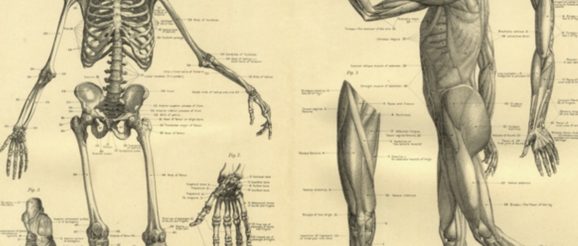7 Smart Health Innovations for Busy Adults | Articles | Innovation | Innovation Enterprise

Science and technological innovation have greatly improved over the years and the impact on the healthcare industry is evident. From the introduction of electronic health records to digitizing each patient’s record, technology is gradually changing the landscape of health and medicine. In 2017,
Statista recorded $405 billion of global medical technology revenues.
Paradoxically, the hustle and bustle in the world today make it difficult for a lot of people to pay attention to how they feel mentally and physically. This indirectly affects the average human life span. Many technology tools have been introduced over the years to help improve productivity by, for example,
freeing up more time. They can help you be less overwhelmed with work and other activities so that you can focus more time on improving your health.
Below are seven smart health tools that can help track and boost productivity.
Wearable Blood Pressure Monitor
For those required to check their blood pressure regularly, such as patients with hypertension, a
wearable blood pressure monitor is an efficient solution. This smart wearable will give you precise readings and can be comfortably worn everywhere you go. You won’t have to visit the doctor to check your blood pressure or fool around with machine cuffs.
Buddylife is a companion app for devices like FitBit and Apple smartwatch; it is built for the elderly, to make things easier for caretakers and give them greater peace of mind. The app’s machine learning and artificial intelligence capabilities help detect when the user has fallen. The app also helps monitor vitals, keep track of medications, and set border alerts. If anything happens that is out of the norm, caregivers connected to the device are alerted immediately.
Wearable fitness trackers like
FitBit are an easy way to monitor your health all day long while going about your business. This tiny device can be clipped to your clothes or worn on the wrists. While it helps track your movement during the day, it monitors your sleep at night and helps you get enough quality sleep. It also helps track activities and measures data such as the number of steps walked, heart rate, and more.
Apple Watch
Apple Watch encourages a healthier lifestyle while functioning as a mini smartphone. It helps track activity trends, alerts the user to harmful levels of noise, and even allows users to track their menstrual cycles. The
Apple Heart Study app, launched in 2017, helps monitor heart rhythm and alerts the user to any irregularities. The fitness tracker feature allows you to share your fitness journey with friends.
Smart Caregiver Monitor
With the recent technological advancement, a lot of people are more relaxed leaving their seniors at home while they attend to other activities. This
smart caregiver device helps the caregiver stay remotely informed on the seniors back at home.
Sleep Cycle
The Sleep Cycle App helps to track and analyze sleep patterns and determines your level of wakefulness. This helps you know the best time to sleep and the length, which improves the quality of your sleep in the long run. In July 2019, the Sleep Cycle app marked its 10th year anniversary and
reported that 37.4 million have downloaded the app worldwide, with 4.38 billion hours of sleep tracked.
Digital Peak Flow Meter
This device is specifically designed for people with asthma and chronic obstructive pulmonary disease and has been proven to be accurate for the monitoring of those two conditions. It measures the peak expiratory flow (PEF) and the forced expiratory volume (FEV) and helps you to be aware of when an attack might be close. There is also a color-coded system on the device that shows how your lungs are performing. This digital peak flow meter could help you avoid costly hospital visits.
To boost productivity and still pay attention to your health in this busy modern age, see how much of a difference smart health tools can make. While these smart tools are quite helpful, it is also advisable to see a health professional when necessary and not solely rely on smart devices.
